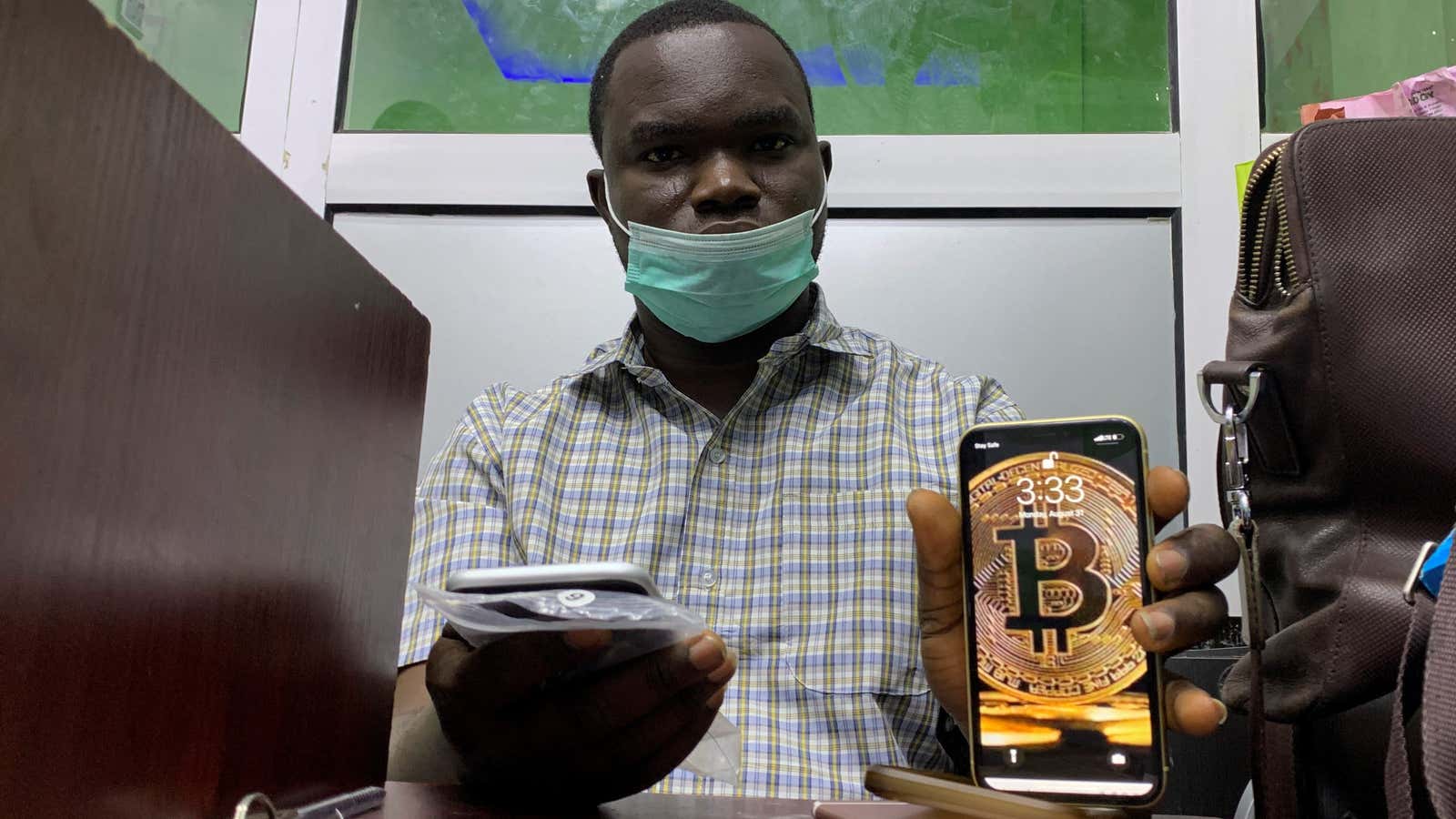Even if bitcoin loses favor with the celebrity backers helping to boost its value, there are legions of lesser-known diehards standing by its side.
That’s partly because the wildly popular cryptocurrency is not just a hot investment for hedge funders and corporate moguls—it’s become a cost-effective way to transfer money throughout the developing world. Nowhere is this clearer than in Nigeria, where the central bank is so worried about Nigerians choosing cryptocurrencies over the naira for overseas remittance payments that it is now paying them to use official channels for those transfers instead. The central bank announced the scheme after international remittances inflows plummeted last year, as more Nigerians abandoned official banking channels by turning to cheaper cryptocurrency exchanges. The move came on the heels of a nationwide crackdown on banks dealing in cryptocurrencies, which the government enacted in an attempt to counteract the naira’s declining value.
Other emerging market central banks in Latin America, India, and Southeast Asia, where remittances make up a significant share of the economy, are in a similar bind. Bitcoin transfers surged in emerging markets last year, as the pandemic accelerated the rise of cheaper, more efficient digital remittance services.
Bitcoin’s appeal in emerging markets
For migrant workers who frequently send money across borders to support their families, the minimal transaction costs of cryptocurrency exchanges beat exorbitant transaction fees of traditional money wire companies like Western Union and MoneyGram, whose dominance of the remittances market has long troubled international development institutions concerned with economic growth. Cryptocurrency transactions are faster than official currency transfers, which require working through banks reliant on SWIFT, the sluggish, half-century-old interbank messaging system that handles cross-border payments.
Cryptocurrency exchanges also avoid the political complications of official channels. They have been used to skirt US sanctions to access international payments and financial markets, and by unofficial migrant workers who lack access to local banks. The global reach of cryptocurrencies avoids the inflation risk inherent to official currencies, especially in politically unstable countries reliant on fickle foreign investors.
Central banks fight back
To turn back the tide, central banks have been scurrying to build out official digital currencies to compete with private crypto companies. The question is how quickly they can develop those channels as private players rapidly expand their reach. So far, governments banning cryptocurrencies to buy time have found that, in the digital age, blocking enterprising crypto investors from global markets doesn’t work. Die-hards have simply moved on to smaller peer-to-peer crypto exchanges, making traditional outlets look worse.
